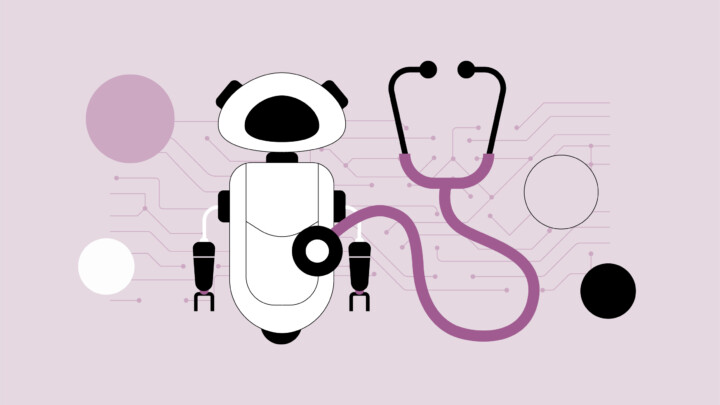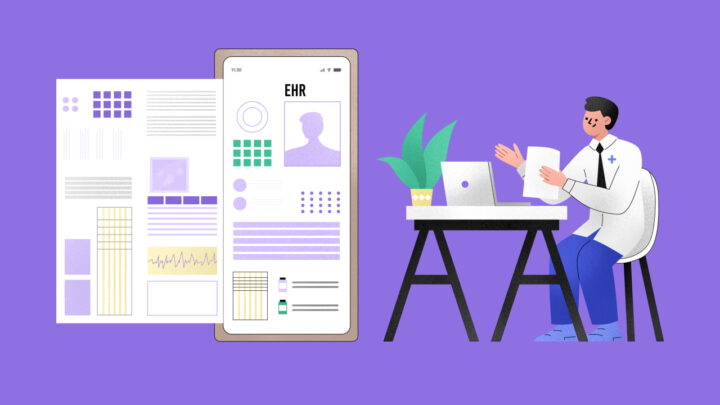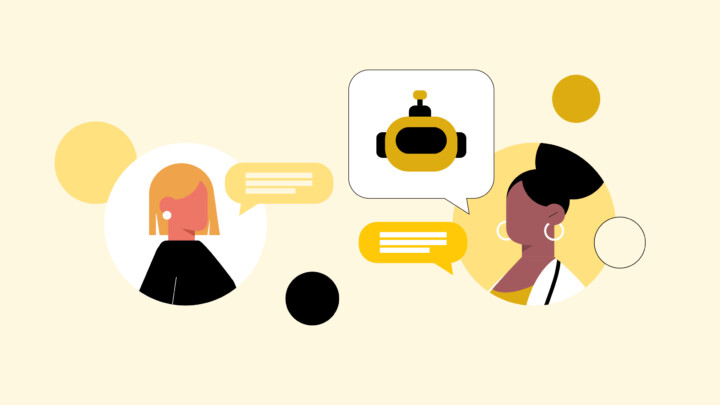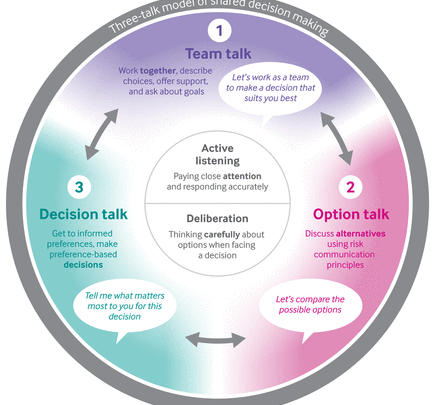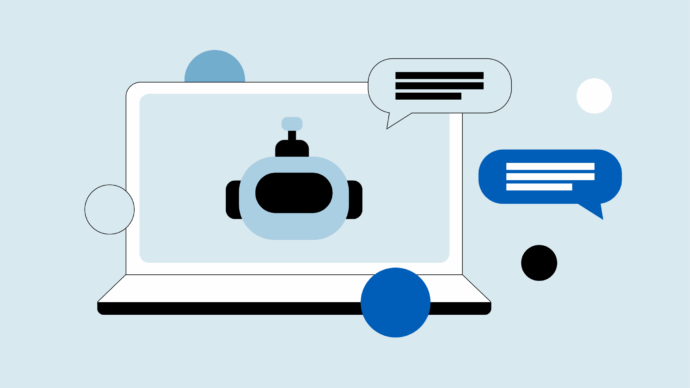
Conversational AI solutions
Conversational AI is revolutionizing healthcare by enhancing patient communication, streamlining workflows, and improving diagnostic support. AI can reduce administrative burdens, optimize efficiency, and improve patient outcomes, allowing physicians to focus more on care rather than paperwork. According to a survey, 88% of physicians on Sermo said that they believe AI has the potential to impact the future of medicine significantly.
Understanding AI’s role ensures physicians can stay ahead in a rapidly evolving medical landscape. According to a Sermo Survey, 47% of physicians believe AI can accurately predict patient outcomes, with 93% feeling optimistic about its integration.
In this article, we will discuss conversational AI in depth and how these technologies have improved the lives of physicians and patients alike.
What is conversational AI in healthcare?
Modern technology is rapidly changing how healthcare works. Advanced chatbots and virtual agents are just two examples of conversational ai solutions in healthcare, essentially providing a more humanized chat experience to patients as compared to traditional bots with limited trained responses. Patients can keep on track by using conversational AI to book, cancel, and reschedule appointments, inquire about medication, or get information about a new diagnosis – all at their convenience and without having to call or visit the clinic. Physicians can enjoy the simplicity of sending automated appointment reminders, transcribing interactions with patients, and facilitating the collection of feedback and reviews.
Facilities use smart programs such as these as a way to communicate with patients and improve the level of care. Patient-centered care means that each patient gets the personalized attention that they need and deserve, and conversational AI has gone a long way in allowing that to happen. The technology talks at a human level, quickly solving problems and completing tasks. It is changing how healthcare providers interact, making care more personal, faster, and much more accurate. One physician on Sermo says that “Artificial intelligence in medicine is an important tool because thanks to it, better follow-up of patients and faster diagnosis and recommendations can be made, which allow the improvement of the quality of life of patients.”
Conversational AI is a computer technology that understands and responds to human language by combining several tools:
- Natural Language Processing (NLP): helps computers understand both spoken and written language.
- Machine learning: analyzes data to improve systems.
- Speech recognition: converts spoken language into text.
Components of conversational AI and how It works
Conversational AI combines machine learning and natural language processing as its two main components, and with AI being increasingly used in healthcare, it is important to understand exactly how it works.
Machine learning
This component of AI focuses on algorithms and models that enable computers to learn from data without being directly programmed. Machine learning allows for information to be saved and referenced in future interactions, whereas static chatbots are rules-based and limited to pre-defined answers.
Natural Language Processing
This field of AI enables computers to interpret, understand, and generate human language. By bridging the gap between human communication and computer processing, machines can interact with humans more naturally.
NLP consists of four steps:
- Input generation: input is provided in voice or text format.
- Input analysis: the conversational AI solution app uses natural language understanding (NLU) to figure out the meaning of text-based input. For text-based input, automatic speech recognition (ASR) and NLU are used to analyze the data.
- Dialogue management: Natural Language Generation (NLG) develops a response.
- Reinforcement learning: responses are refined using machine learning algorithms to ensure accuracy.
Benefits of conversational AI in healthcare
Conversational AI is revolutionizing healthcare and offers a multitude of benefits. It is changing things for the better, making care more efficient, faster, and more personalized for everyone. Many physicians, doctors’ offices, and hospitals are already using AI regularly, but has it transformed the field of medicine? Most would say—not yet.
A family medicine doctor on Sermo shares, “I use AI to help start drafts for staff talking points, grievance letters, and other communications. But I will continually review and edit it to give it a human touch. It’s just a starting point”, while another radiologist says that “AI can be a helpful screener in juggling facts, but should never take the place of human assessment and intuition.”
Below are some of the ways that conversational AI can benefit patients and physicians alike:
Cost savings
By automating even the most routine tasks, conversational AI helps with cost savings in the healthcare industry by reducing administrative burden and assisting with elements such as appointment scheduling, finance, and patient communication. As a result, there are reduced labor costs and fewer errors.
Extended business hours
With the use of conversational AI, healthcare facilities can offer 24/7 support through the use of virtual assistants and chatbots by allowing patients to access information, schedule appointments, and get assistance outside of traditional office hours. Patients no longer have to worry about communicating during business hours only.
Influence customer purchase decisions
AI can assist customers by gathering data and influencing purchase decisions by providing personalized recommendations, facilitating informed decision making, and enhancing patient education. It helps with patient selection of medical devices or preventative healthcare products using features like chatbots, voice-bots, and virtual assistants that can engage in natural language conversations to address patient needs and make appropriate recommendations.
Improved accessibility and engagement
Healthcare is made more widely available by using conversational AI. Patients can have access to medical resources quickly and at any time, getting the help they need faster than ever before.
Improves patient communication
The technology helps to bridge communication gaps and handles routine inquiries. By understanding complex language, AI can help ensure that every patient feels heard and understood, tailoring responses to individual patient needs and reducing language barriers. One US physician shared, “I used AI to reduce reading level to ensure all literacy levels can understand the documents… I look forward to AI’s advances in reducing language barriers, especially with a real-time translation that can help us connect better with our patients and families.”
Reduces administrative burden
33% of surveyed physicians on Sermo agree that one of the most compelling benefits of AI is the ability to streamline administrative tasks. Overall, conversational AI can reduce this burden and even assist in preventing doctor burnout in the healthcare industry by optimizing workflows, tracking patient records, and managing inventory, leading to a more efficient and organized healthcare facility.
Enhances diagnostic support
By offering the 24/7 support that patients need, conversational AI can provide personalized medical information, assist with symptom assessment, and analyze patient data and medical images to identify diseases and abnormalities with better accuracy and speed than traditional methods.
Increases efficiency
AI makes collecting data much easier. By securely gathering data and organizing it for review, physicians can quickly access records whenever needed. By providing relevant data in real-time, AI helps support better clinical decisions.
Personalized patient care
Every patient has individual needs, and AI can communicate with people in a unique way that applies to them. It remembers past visits, medications, and preferences, making each person feel understood. This builds trust and improves patient satisfaction.
Use cases of conversational AI in healthcare
Patient triage and symptom checking
Patients can describe their symptoms to an AI chatbot before seeing a doctor, which helps identify the urgency or severity of the condition. Relevant information is collected so that providers are better prepared and treatment can be provided quickly.
Appointment scheduling and reminders
AI can simplify the process of sending reminders and scheduling appointments, keeping schedules running smoothly, and helping to ensure that patients are not missing appointments. Human intervention is no longer needed for things like rescheduling and cancelling.
Medical documentation and transcription
Conversations are converted from spoken language into accurate text, which reduces documentation time and improves care and efficiency.
Medication reminders and adherence support
With chronic care management, medication adherence can be difficult. Conversational AI can help ensure that patients follow treatment plans by sending timely reminders.
Virtual health assistants for chronic disease management
Patient support can be extended beyond office hours by allowing patients to get immediate answers to questions regarding symptoms, prescriptions, and procedures. The advice is individually tailored to each patient’s lifestyle and health data. AI provides daily check-ins and personalized recommendations so that patients are never alone.
Mental health chatbots and therapy support
AI can offer emotional support and help monitor patient well-being. Chatbots can provide patients with coping strategies and emotional assistance, as well as detect emotional shifts and suggest interventions.
Insurance claims processing and verification
Insurance and billing can be confusing for patients, and conversational AI provides guidance through the process of filing claims and other billing inquiries.
Health education and FAQs
Virtual assistance provides health education, which helps improve long-term outcomes. Patients have easy access to resources, receiving information that helps with informed decision making.
Language translation for patient communication
Language barriers should never prevent anyone from receiving the best care possible. AI helps with translation to facilitate better communication between patients and providers.
Join the conversation on Sermo
Conversational AI is making healthcare faster, more accessible, and more personalized, which means better care today and into the future. These exciting innovations and use cases benefit the medical community by simplifying processes, and are becoming an indispensable tool in the medical community, with one radiologist on Sermo stating, “AI is future and we have to embrace it”.
Connect with other physicians through Sermo to share insights, discuss real-world challenges, and see how AI is shaping the future of medicine.
